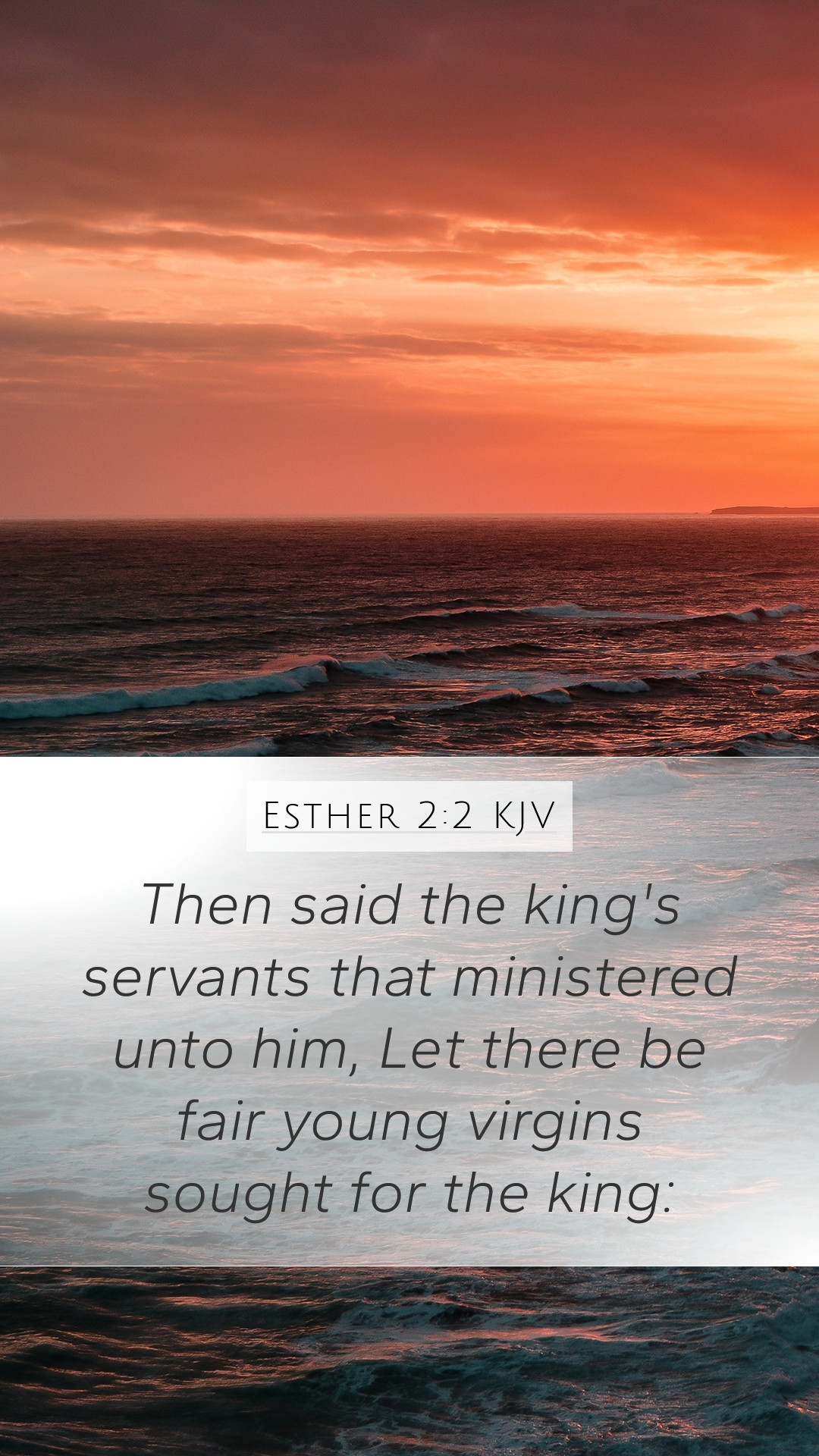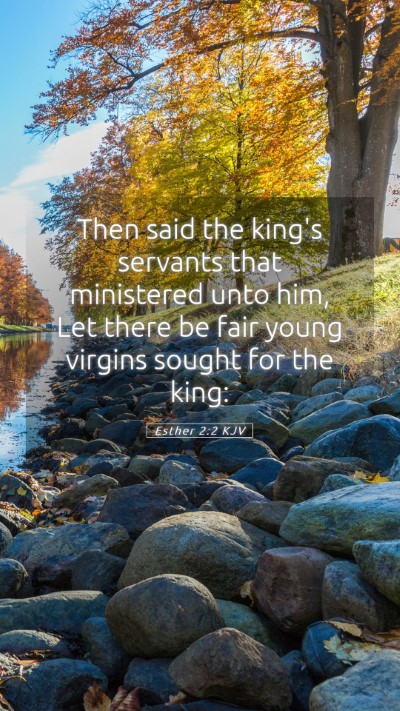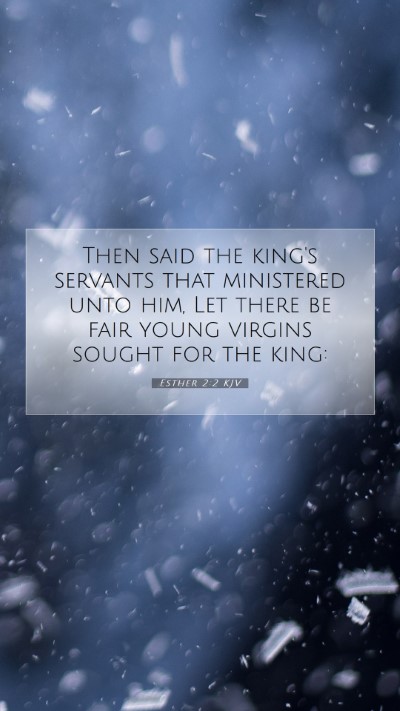Old Testament
Genesis Exodus Leviticus Numbers Deuteronomy Joshua Judges Ruth 1 Samuel 2 Samuel 1 Kings 2 Kings 1 Chronicles 2 Chronicles Ezra Nehemiah Esther Job Psalms Proverbs Ecclesiastes Song of Solomon Isaiah Jeremiah Lamentations Ezekiel Daniel Hosea Joel Amos Obadiah Jonah Micah Nahum Habakkuk Zephaniah Haggai Zechariah MalachiEsther 2:2 Meaning
What is the meaning of Esther 2:2?
Then said the king's servants that ministered unto him, Let there be fair young virgins sought for the king:
Esther 2:2 Bible Verse Meaning
Understanding Esther 2:2
Bible Verse: Esther 2:2 - "Then the king’s servants who attended him said, 'Let beautiful young virgins be sought for the king.'
Bible Verse Meanings and Interpretations
This verse sets the stage for significant developments in the Book of Esther, illustrating the Persian cultural context and the unfolding of God's providential plan.
Context and Setting
At this point in the narrative, King Ahasuerus (Xerxes I) seeks a new queen after dismissing Vashti. The initiative to gather beautiful young virgins reflects the customs of royal courts and highlights the king's authority and desire for beauty.
Insights from Commentaries
- Matthew Henry: Henry notes that the king’s decision stemmed from a loss of the previous queen’s favor, emphasizing the sometimes precarious nature of royal relationships. He underlines that the search for young virgins possibly served to fulfill not just the king’s desires but also a divine purpose.
- Albert Barnes: Barnes observes that this verse initiates the process leading to Esther becoming queen. He comments on the significance of beauty in this cultural setting and ties it to God's hand guiding history even through events that seem solely human and superficial.
- Adam Clarke: Clarke elaborates on the implications of the king’s need for beauty, suggesting that it reflects not only vanity but also his need for companionship and support. He highlights the importance of this moment in establishing God’s overarching plan for the Israelites.
Significance of the Verse
This verse holds layers of meaning important for understanding Esther's story and God’s providence:
- Divine Providence: While Persian customs dominate the narrative, this context prepares for God’s eventual deliverance of His people through Esther’s elevation, suggesting that God can work through earthly systems.
- Character Development: The verse emphasizes the young women’s beauty, a recurring theme that influences characters throughout the narrative, shaping motivations and actions.
- Human Desire and Leadership: It reflects how earthly rulers often seek to satisfy personal desires through external means, thereby highlighting a contrast between divine authority and human weakness.
Bible Study Insights
When studying this verse, consider its implications for understanding God’s plans against the backdrop of human decisions. Here are some study resources and tools for deeper insight:
- Engage in Bible Study Tools such as commentaries and concordances to explore cross-references.
- Participate in Online Bible Study groups to discuss interpretations and applications.
- Consult Bible Study Guides that focus on the Book of Esther to gather context and understanding.
Application of Esther 2:2
This verse reminds readers of the importance of recognizing God's hand in the circumstances of life, urging reflection on how one can trust in divine plans amidst human uncertainties. Consider the following:
- How to interpret Bible verses within their cultural contexts.
- Understanding the significance of seemingly trivial events in biblical history.
- Applying lessons from Esther’s life to modern concepts of leadership and faith.
Cross References
Related passages for further study include:
- Esther 1:19 - Commentary on Vashti's rejection.
- Esther 2:7 - Introduction of Esther.
- 1 Samuel 16:7 - God looks at the heart, not outward appearance.
- Proverbs 21:1 - The king's heart is in the hand of the Lord.
- Romans 8:28 - All things work together for good.


